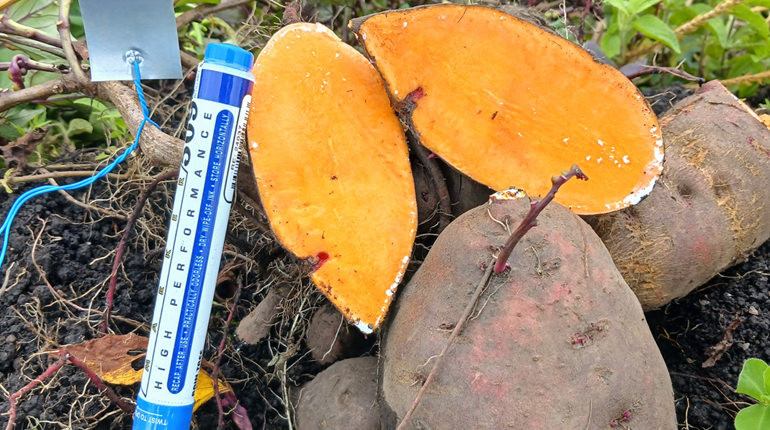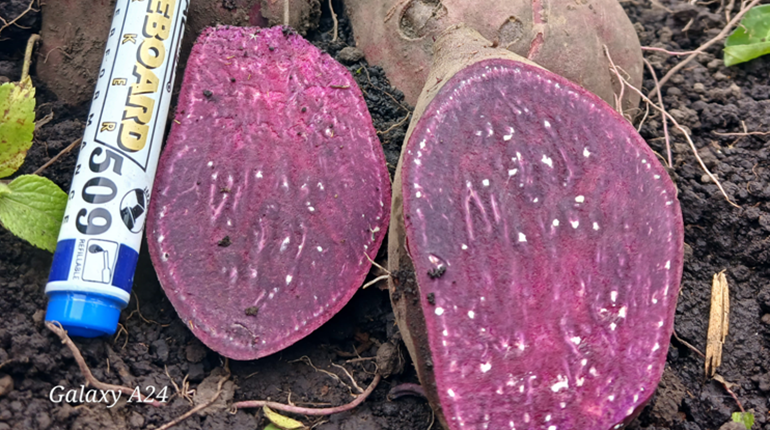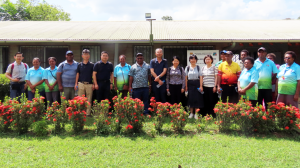In a concerted effort to bolster agricultural resilience and address nutritional deficiencies exacerbated by climate change, a groundbreaking study is underway to create a diverse collection of sweetpotato varieties through poly-cross breeding. Led by Mr. Wera and his team, this innovative approach involves the strategic cross-breeding of selected sweetpotato parent plants from farmers and the National Agricultural Research Institute (NARI) plant collection, with a focus on enhancing traits relevant to climate change adaptation and improving nutritional profiles.
The poly-cross breeding process entails the cross-pollination of two distinct plant varieties to incorporate desirable traits, thereby generating novel sweetpotato varieties tailored to specific needs. The selection criteria for parent plants were meticulously curated, with a keen emphasis on traits conducive to climate change resilience, such as early maturity and drought tolerance. Additionally, efforts were directed towards enhancing nutritional attributes, particularly the development of high beta-carotene content using orange-flesh sweetpotato, and the generation of purple-flesh sweetpotato varieties enriched with antioxidants, notably anthocyanin.
Following a rigorous selection process, sweetpotato varieties demonstrating promising root-forming ability were identified for further evaluation. To mitigate bias and ensure objectivity, an intensive selection process was employed, with only the top 20 percent of candidates progressing to the next trial phase. This meticulous approach underscores the commitment to fostering diversity and excellence in sweetpotato breeding efforts.
The outcomes of this study hold immense potential for advancing agricultural sustainability and improving human health outcomes. By harnessing the genetic diversity of sweetpotato and incorporating desirable traits through poly-cross breeding, the study aims to enrich the existing sweetpotato collection in Papua New Guinea. These enhanced varieties are poised to exhibit heightened resilience to climate change-induced stressors while simultaneously offering superior nutritional profiles and processing qualities.
Crucially, this initiative is aligned with the objectives of the Benefit Sharing Project facilitated by the International Treaty on Plant Genetic Resources for Food and Agriculture. By leveraging international partnerships and collaborative frameworks, Papua New Guinea is poised to strengthen its agricultural sector, enhance food security, and promote sustainable development.
As the study progresses, stakeholders remain optimistic about the transformative impact of diversified sweetpotato varieties in mitigating the adverse effects of climate change, bolstering nutritional security, and fostering economic prosperity. Through continued research and innovation, Papua New Guinea is poised to harness the full potential of its agricultural resources, thereby securing a brighter and more resilient future for generations to come.





